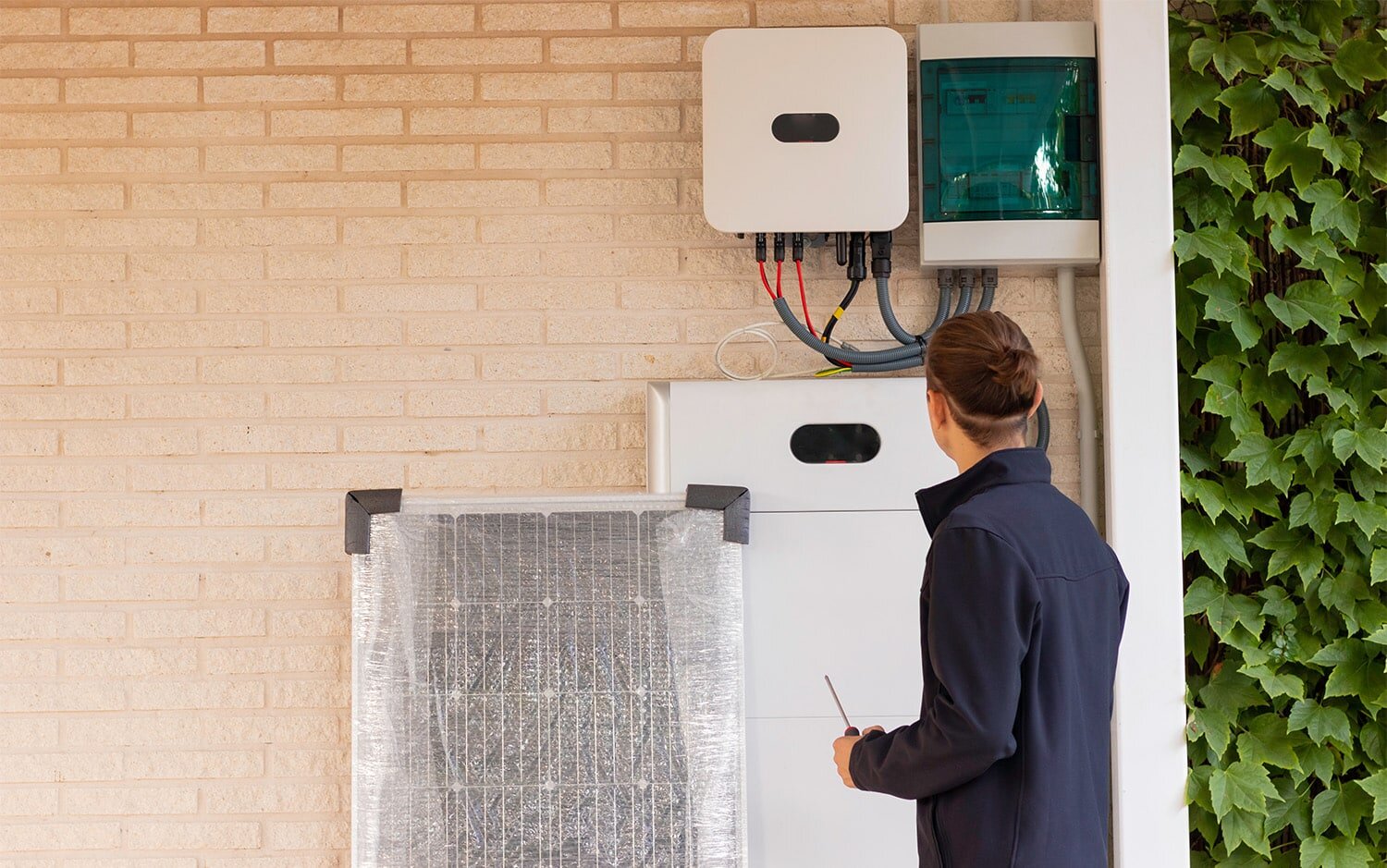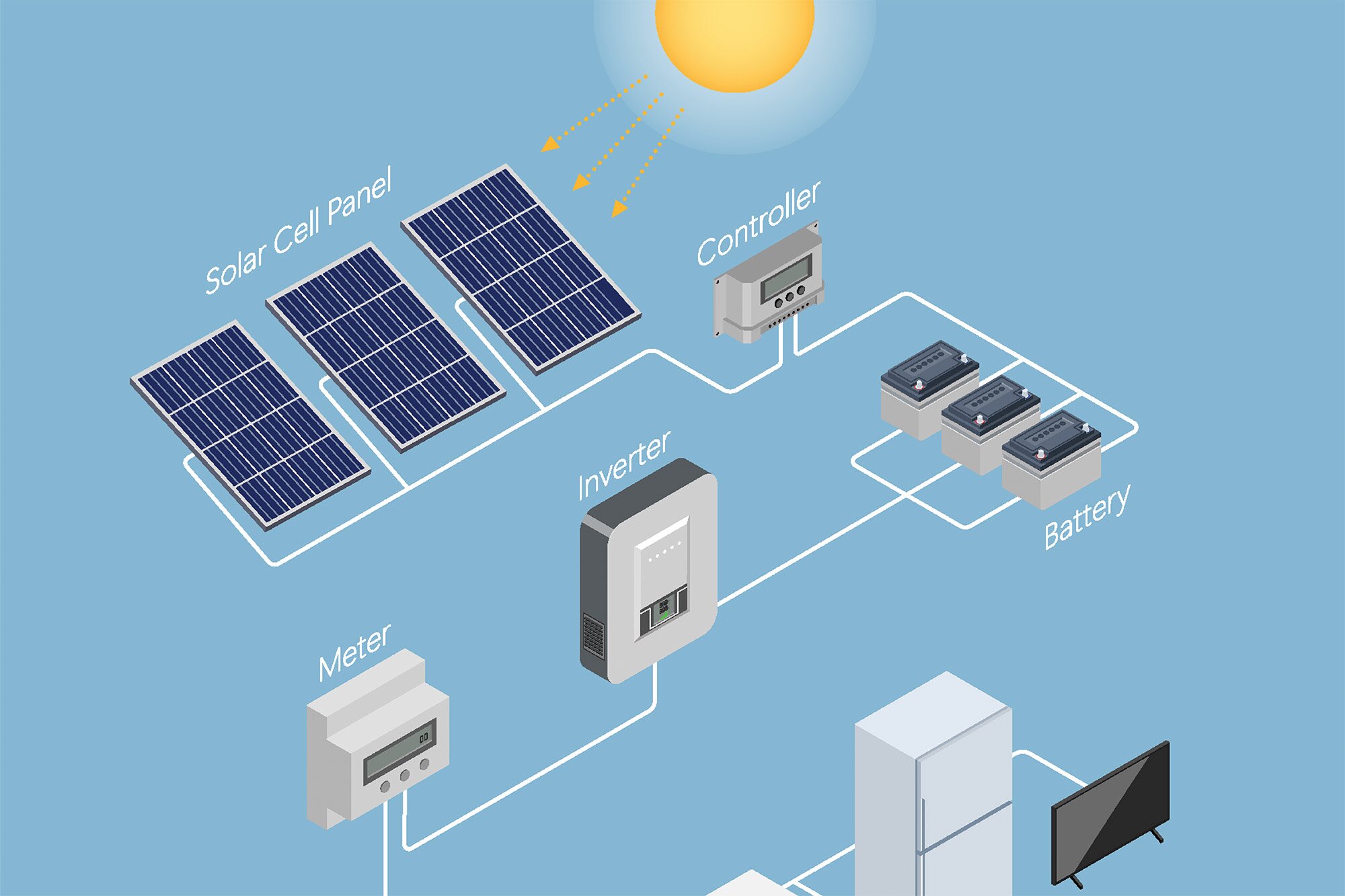Battery storage

What happens to your solar system when the sun isn’t shining? While you can rely on the grid to meet your energy needs when it’s dark, connecting storage to your home solar system offers you even more energy security and increased self-reliance.
Lithium-ion battery systems are the most common form of home energy storage. Depending on their size and shape, they can be placed in a basement, a garage, or even against a wall, and work similarly to ordinary rechargeable batteries.
These systems can store clean solar energy to be used in the evenings or during times of low sunlight and keep homes powered during outages (similar to a generator).

Home energy storage can help increase the stability of the grid by providing electricity when more of it is needed, offsetting energy consumption during times of peak usage, and acting as a place for electricity to go when too much is being produced.
The federal government is now offering a 30% tax credit for home battery installation, and you may find state and local incentives as well.